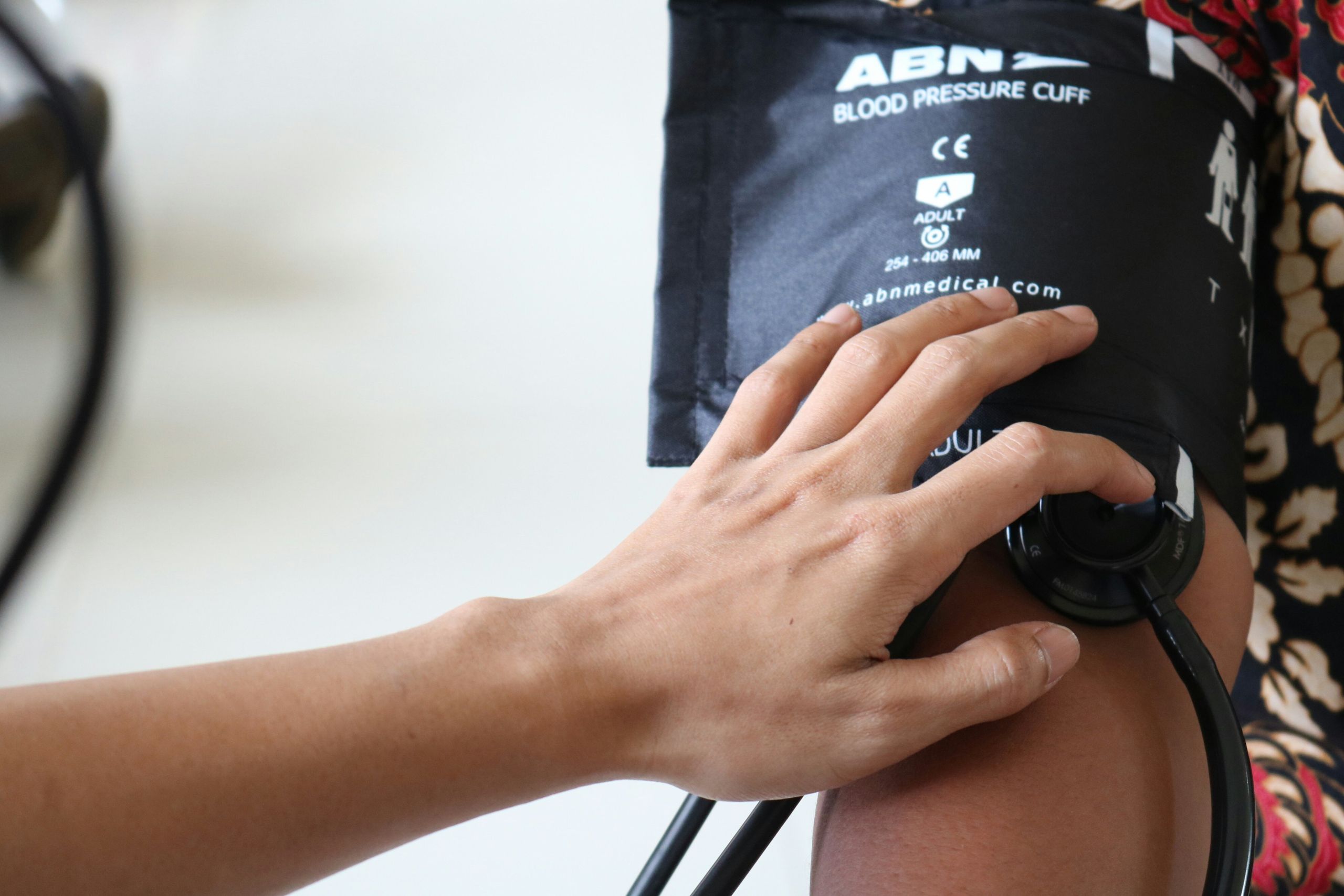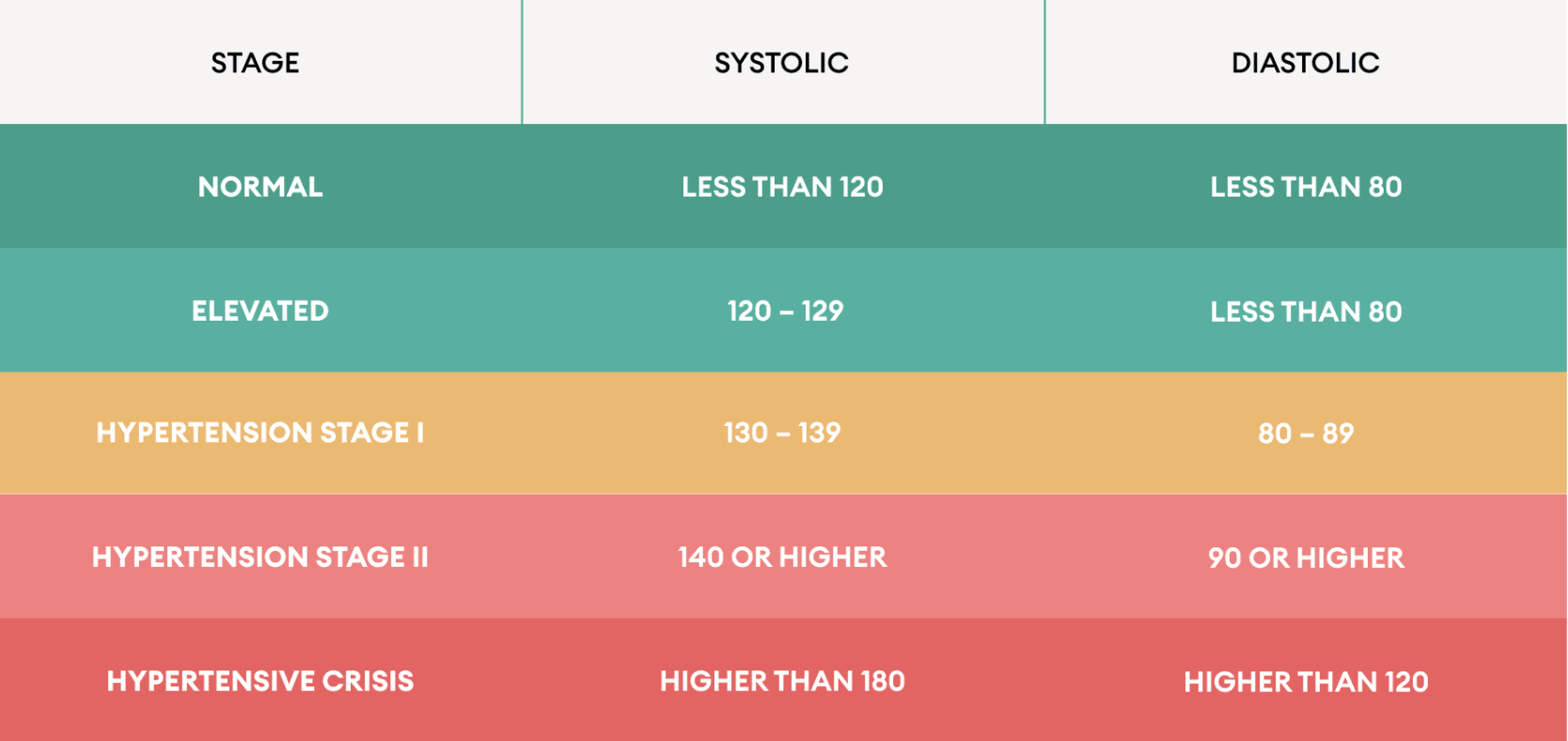Hypertension - High Blood Pressure
Learn all about hypertension - from the correct blood pressure measurement and ideal blood pressure values to diet and lifestyle tips to help prevent high blood pressure. Our comprehensive guide offers valuable insights into how you can minimise your risk of high blood pressure.

To mark World Hypertension Day on 17 May, we are focusing on a topic that affects many people but is often underestimated: Hypertension.
Everything you need to know about hypertension
High blood pressure, or hypertension, is not only a common but also an insidious health condition that affects millions of people worldwide. Did you know that hypertension is often referred to as "the silent killer" because it has no obvious symptoms until it's too late? If left untreated, it can lead to serious health problems such as heart attack, stroke and kidney failure.
But the good news is that you can effectively control hypertension with regular monitoring and appropriate lifestyle changes. In this blog post, we explain how to measure your blood pressure correctly, what values are considered normal and how you can reduce the risk of hypertension through diet and lifestyle.
How do you measure your blood pressure?
Measuring your blood pressure is easier than you might think, and it provides vital information about your heart health. You can use a digital blood pressure monitor placed on your upper arm or wrist. Here are the steps:
1. Preparation:
Rest for 5 minutes before the measurement to make sure your blood pressure is stable.
2. Positioning:
Sit or lie down comfortably and place your arm so that the blood pressure monitor is at heart level.
3. Putting on the cuff:
Wrap the cuff around your bare upper arm, about two fingers wide above the elbow.
4. Measurement:
Start the measuring device. Remain still during the measurement and do not move.
Once the measurement is complete, the device will display two numbers: the systolic pressure (the higher value) and the diastolic pressure (the lower value).
What blood pressure values are considered normal?
It is important to know your blood pressure values, as they can provide information about your health. Here are the guideline values:

It is important to note that blood pressure values can vary depending on age and gender. The above values provide a simple, general definition for adults. However, for a more accurate evaluation and assessment, individual factors such as age, gender and health status should be taken into account. It is advisable to seek regular medical advice to ensure that your blood pressure values are within the optimal range.
Prevention and Management of Hypertension
A healthy lifestyle can significantly reduce your risk of hypertension. Here are some effective strategies:
The power of nutrition
A balanced diet is the key to healthy blood pressure levels. Here's how you can harness the power of nutrition:
1. Eat more fruit and vegetables🍏🥦
- Fruit and vegetables are rich in essential vitamins, minerals and antioxidants that support heart health.
- Look for a variety of colours on your plate to ensure you're getting a wide range of nutrients.
2. Healthy fats are important 🥑🌰
- Include healthy fats such as avocados, nuts, seeds and olive oil in your diet.
- These fats can help lower bad cholesterol and improve heart health.
3. Limit your salt intake 🧂🚫
- Too much salt can raise your blood pressure.
- Less is more!
- Less salt and your food no longer tastes good? Stick with it for a week, your sense of taste will get used to it!
4. Drink plenty of water
- Water helps to maintain the balance of body fluids and supports overall health.
- Drink at least 8 glasses of water a day, more if you are physically active or live in a hot climate.
5. Limit sugary drinks
- Consuming sugary drinks over the long term can affect vascular health and increase blood pressure.
- In addition, increased intake can lead to obesity, which is a significant risk factor for developing hypertension.
6. Reduce your intake of caffeine and alcohol
7. watch your portion sizes
- Large portions can lead to overeating and therefore obesity, which is a major risk factor for developing hypertension.
- Conversely, smaller portions will help you to control your weight and thus contribute to lowering your risk of hypertension.
Beneficial fruit, vegetables and drinks 🍎🌿
- Berries (blueberries, strawberries, raspberries) - Rich in antioxidants and fibre that support your heart health.
- Citrus fruits (oranges, lemons, grapefruits) - Rich in vitamin C and potassium, which can lower blood pressure.
- Green leafy vegetables (spinach, kale, chard) - High in nitrate and magnesium, which can help relax blood vessels.
- Bananas - Contain lots of potassium, which helps to balance sodium levels in the body.
- Beetroot - Contains nitrates, which can lower blood pressure.
- Avocados - Rich in healthy fats and potassium.
- Water - Important for hydration and maintaining balanced body functions.
- Herbal teas (hibiscus, chamomile) - Can help lower blood pressure and relax.
- Low sodium vegetable juice - A good source of potassium and other nutrients without the added sodium.
- Natural fruit juices (no added sugar) - Provide vitamins and minerals that are beneficial to heart health.
Be careful with:
- Pickled vegetables - High in sodium
- Canned vegetables with added salt - Also high in sodium; opt for low-sodium varieties.
- Certain dried fruits - can be high in sugar and sodium; read the labels carefully!
- Fruit juices with added sugar - They contain a lot of sugar, which can lead to weight gain and increased blood pressure.
- Fried and deep-fried fast food - Can contribute to higher blood pressure if consumed in large quantities. High fat and salt content
- Sugary soft drinks - Contain a lot of sugar
- Energy drinks - Often contain high levels of caffeine and sugar, which can raise blood pressure.
- Alcohol - Excessive consumption can increase blood pressure; moderation is key.
- Caffeinated drinks (in excess) - Too much caffeine can lead to higher blood pressure.
Conclusion
Controlling your blood pressure through your diet is a good way to take control of your health. By keeping an eye on your diet and hydration and focusing on a plant-based diet, you can significantly reduce your risk of high blood pressure and improve your overall wellbeing.
Start making these changes today and feel the difference in your health tomorrow! With Every. 🌱
🍏🥤Eat smart, live healthily and take control of your blood pressure! 🫀🩺
We make it easy for you!
Integrate a plant-based diet into your everyday life. Now it's easy and delicious!
